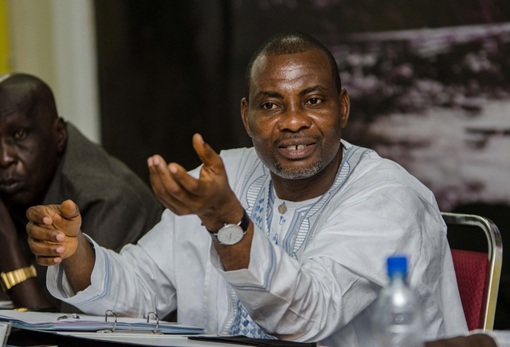
AfDB hires Commissioner General to implement tax reforms in war-wrecked nation
Kampala, Uganda | IAN KATUSIIME | South Sudan is a young nation beset with many troubles especially the continuous outbreaks of war.
But that has not deterred Africa’s newest nation from building its institutions, with the National Revenue Authority being one of those getting a head start to enable the country have a semblance of a functional state.
Uganda Revenue Authority (URA) in partnership with the Japan International Cooperation Agency (JICA) has in the past one year provided logistical and human resource support to South Sudan customs officials in Kampala.
JICA has conducted training sessions for South Sudan customs officials particularly on a program called Harmonised System (HS).
HS is an internationally standardized system of names and numbers to classify traded products. It came into effect in 1988 and has since been developed and maintained by the World Customs Organisation (WCO) (formerly the Customs Co-operation Council), an independent intergovernmental organisation based in Brussels, Belgium, with over 200 member countries.
This comes nearly two months since the African Development Bank (AfDB) recruited Olympio Attipoe, a Ghanaian national as the commissioner general of the South Sudan Revenue Authority.
Attipoe said he plans to have selected a maximum of five banks to collect revenue on behalf of South Sudan Revenue Authority (SSRA) by mid next month.
During the past two financial years, the South Sudan Ministry of Finance collected revenue on behalf of government with the help of 10 commercial banks.
“I revoked all the contracts and now we are screening banks to do the collection,” said Attipoe during a capacity development meeting for South Sudan customs officials at the URA Training Centre in Kampala on June 18.
The training was attended by Mitsunori Numaguchi, the JICA Deputy Chief Advisor of the Capacity Development Project for South Sudan among other JICA officials.
Among other reforms Attipoe wants to implement is a tax audit investigation which will look out for multinational companies that have been declaring zero profit in the conflict-ridden country.
“This one will be headed by a commissioner,” he said.
Attipoe, who has been resident in South Sudan for the last seven years, said he appreciates the many challenges the country is facing especially war. He said the reform process will be a long and tiring one.
“There is a fragile political situation and even oil production which the country heavily relies on, we will have to diversify,” he explained.
Transition period
He also said as commissioner general, he is in a transition period as the hiring process for the initial 650 new staff at the revenue body is underway with the help of an international recruitment agency.
The period also involves the Ministry of Finance handing over the tax collection role to the South Sudan Revenue Authority.
However, he could not state the amount of revenue that the finance ministry had collected in the financial year 2017/2018 as some of the contracted banks could not provide reliable data.
Meanwhile, Attipoe revealed that prospective applicants will have to carefully read the terms of reference for their jobs if they are to have a chance at succeeding at their new jobs.
So far, 10 HS trainings for approximately 100 customs officers and other sessions for Clearing Agents have been carried out.
They have also developed explanatory notes for South Sudan through case studies and learned ways of classifying the commodities execution.
Statistics trainings have been conducted for another 100 customs officers by JICA experts and URA officials. The South Sudanese received training on how to apply correct and accurate trade statistics. They have also received mentoring on principles of basic mathematics and computer skills.
South Sudan descended into conflict in December 2013 following a power struggle between President Salvar Kiir, and his former vice president Riek Machar.
Power struggles between President Kiir and Dr Machar have led to a huge tax default. The two country’s top officials were in Addis Ababa, Ethiopia recently for negotiations to end the long running conflict.
The SSRA was established as part of reforms in chapter 4 of the 2015 peace agreement. It is tasked to ensure that all revenues are remitted to a “single treasury account,”, and expenditures are conducted in accordance with the law and budget. The SSRA is also mandated to assess, collect, administrate and enforce laws relating to taxation and revenues.
 The Independent Uganda: You get the Truth we Pay the Price
The Independent Uganda: You get the Truth we Pay the Price



